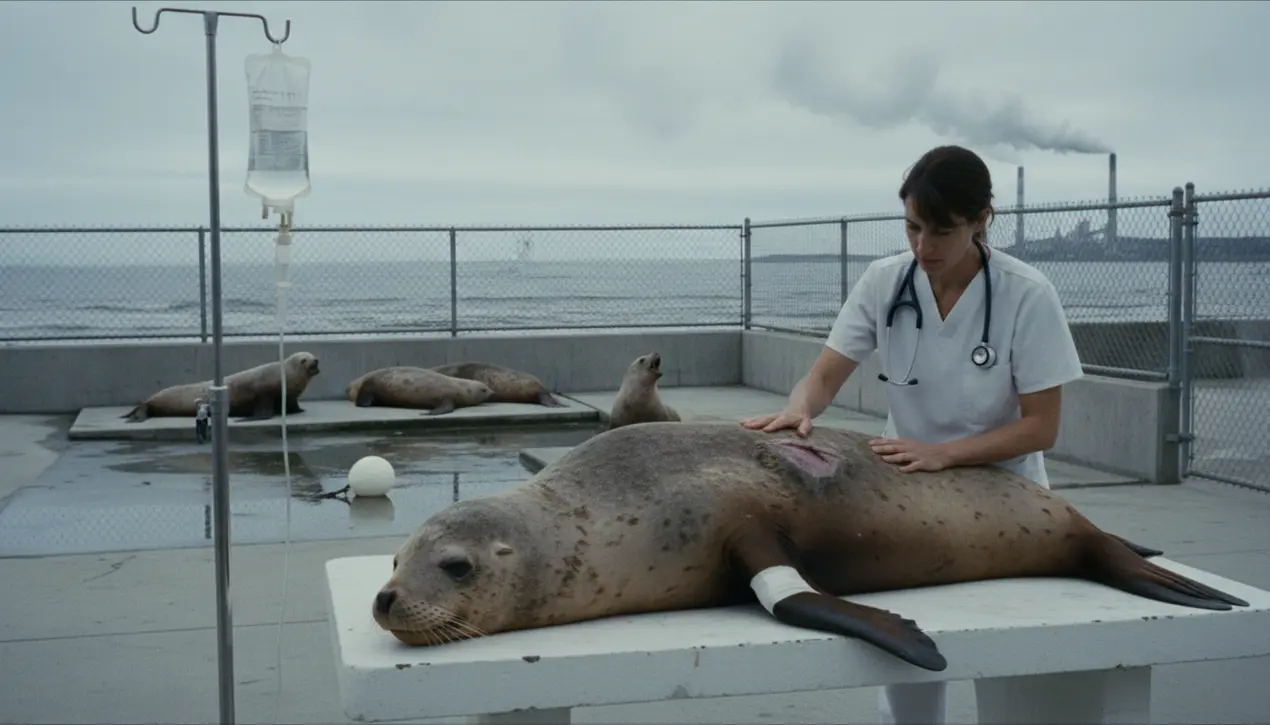
SciencebiologyAnimal Behavior
Animals are developing the same chronic diseases as humans
RA
Rachel Adams
2 hours ago7 min read2 comments
A quiet, unsettling transformation is unfolding across the planet's ecosystems, one that mirrors our own human health crises with alarming fidelity. From domestic cats and dogs developing type 2 diabetes from processed pet foods to dairy cows in industrial operations suffering from metabolic disorders and wildlife like sea lions exhibiting skyrocketing rates of cancers linked to oceanic pollutants, the boundary between human and animal medicine is blurring into a single, distressing narrative of chronic disease.This isn't a series of isolated incidents but a systemic phenomenon, a global health crisis that transcends species. A groundbreaking study from the Agricultural University of Athens is now proposing a unified 'One Health' model to connect these dots, arguing that the same environmental and lifestyle pressures driving our pandemics of obesity, arthritis, and cancer are creating parallel epidemics in the animal kingdom.The evidence is mounting in peer-reviewed journals and veterinary clinics worldwide: beluga whales in the St. Lawrence Estuary have been documented with intestinal cancers linked to industrial runoff, while urban rodents show signs of advanced atherosclerosis from scavenging our high-fat food waste.The common drivers are a toxic quartet—genetics, pollution, poor nutrition, and chronic stress—all exacerbated by human activity. We are quite literally feeding our pets an ultra-processed diet that mirrors our own, creating an obesity crisis in companion animals that leads to the same joint and metabolic issues.We are pumping our farm animals with calorie-dense feeds to maximize yield, pushing their biological systems into overdrive and predisposing them to illnesses. And on a grander scale, we are contaminating the air, water, and soil with microplastics, PFAS 'forever chemicals,' and agricultural pesticides that bioaccumulate up the food chain, impacting marine life, birds, and terrestrial mammals.The stress of habitat loss and climate change-induced weather events further suppresses immune systems, making animals more susceptible to these diseases. This isn't merely an animal welfare issue; it's a profound ecological warning sign.As Dr. Eleni Voukoutou, a lead researcher on the Athens study, explains, 'Animals are the sentinels.They are experiencing these chronic conditions often before the full effects are visible in human populations at large, providing us with a critical, real-time barometer of planetary health. ' The consequences of ignoring this shared pathology are dire.It signals a breakdown in the fundamental life-support systems we all depend on, pointing toward a future where the resilience of entire species, including our own, is compromised. The unified model proposed by the scientists is a call to action, urging a radical shift from a human-centric view of medicine to an ecological one, where the health of people, animals, and our shared environment is understood as inextricably and tragically linked.
#featured
#chronic diseases
#animals
#human diseases
#cancer
#diabetes
#obesity
#pollution
#stress
#unified model
Stay Informed. Act Smarter.
Get weekly highlights, major headlines, and expert insights — then put your knowledge to work in our live prediction markets.
Related News
Comments
Loading comments...
© 2025 Outpoll Service LTD. All rights reserved.